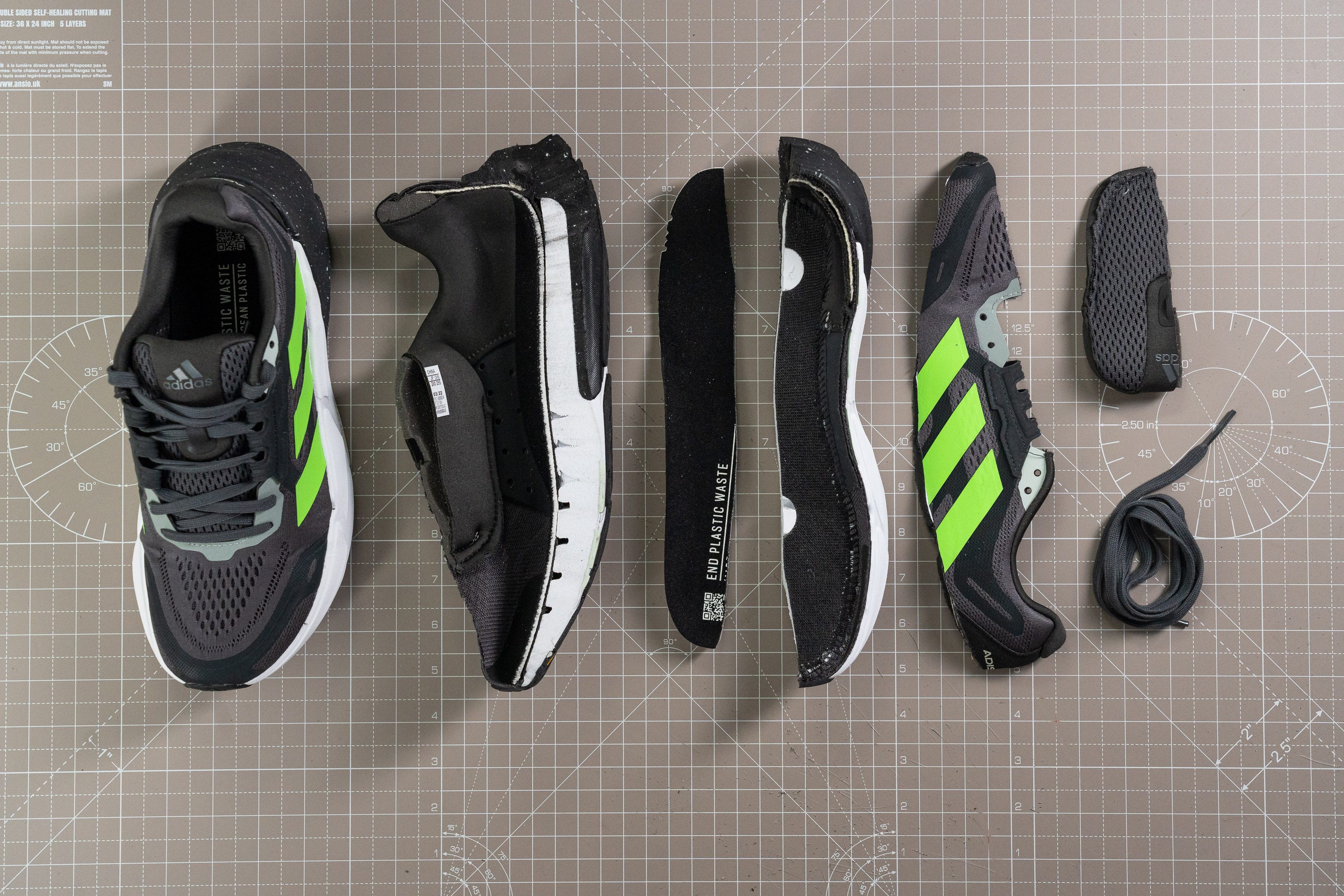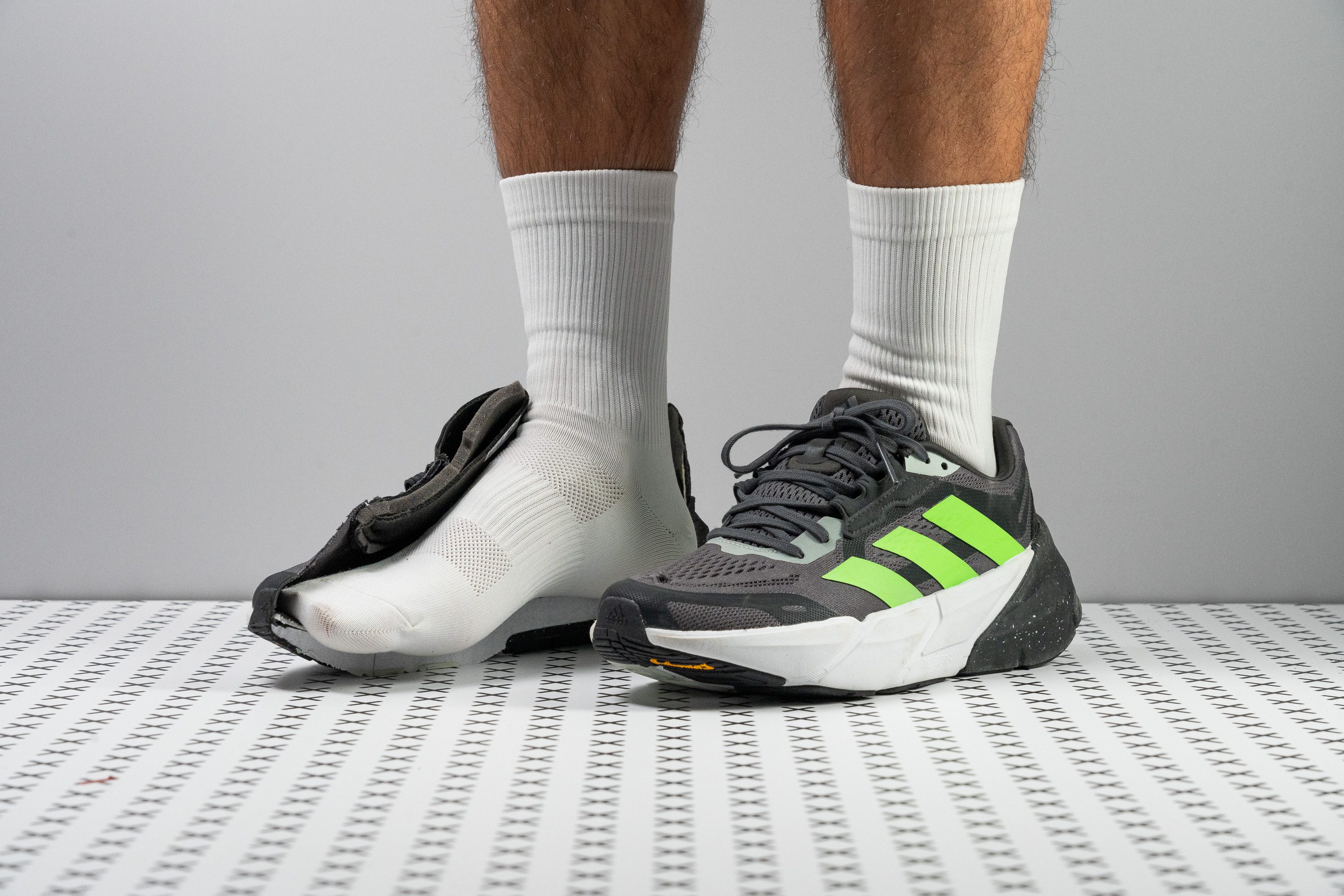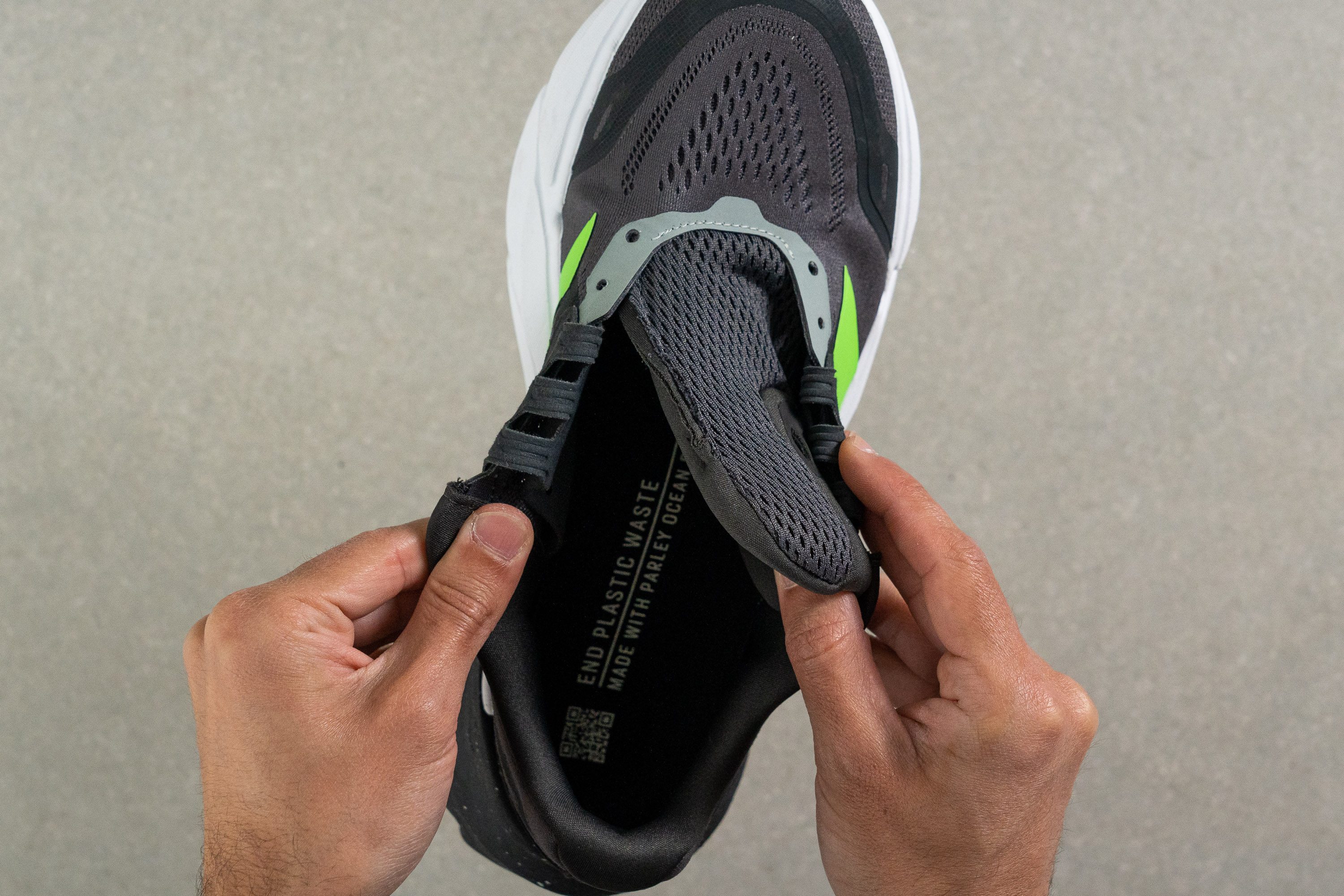Our verdict
Pros
- Stable landings
- Maxed-out cushion
- Relaxed and accommodating fit
- Roomy toe box
- Tongue stays in place
- Durable
- Summer-ready breathability
- Recycled upper
- Grippy on ice
- Great for long runs
Cons
- Could be more responsive
- Firm for heel strikers
- Heavier than most trainers
- Becomes a brick in winter
Audience verdict
Comparison
The most similar running shoes compared
+ + Add a shoe | |||||
|---|---|---|---|---|---|
| Audience score | 88 Great! | 89 Great! | 82 Good! | 81 Good! | |
| Price | £120 | £120 | £80 | £80 | |
| Pace | Daily running | Daily running | Daily running | Daily running | |
| Shock absorption | - | High | Low | Low | |
| Energy return | - | Low | Low | Low | |
| Traction | - | Moderate | Low | Moderate | |
| Arch support | Neutral | Neutral | Neutral | Neutral | |
| Weight lab Weight brand | 11.5 oz / 325g 11.2 oz / 318g | 9.7 oz / 274g 9.5 oz / 270g | 11.5 oz / 326g 12.1 oz / 343g | 10.5 oz / 298g 9.9 oz / 280g | |
| Drop lab Drop brand | 9.6 mm 6.0 mm | 10.5 mm 5.0 mm | 11.3 mm 9.0 mm | 9.4 mm 10.0 mm | |
| Strike pattern | HeelMid/forefoot | Heel | Heel | HeelMid/forefoot | |
| Size | True to size | True to size | True to size | Slightly small | |
| Midsole softness | Balanced | Soft | Balanced | Firm | |
| Difference in midsole softness in cold | Normal | Normal | Normal | Small | |
| Toebox durability | Decent | Bad | Decent | Bad | |
| Heel padding durability | Good | Decent | Decent | Bad | |
| Outsole durability | - | Good | Decent | - | |
| Breathability | Moderate | Breathable | Breathable | Moderate | |
| Width / fit | Narrow | Medium | Medium | Medium | |
| Toebox width | Medium | Medium | Medium | Medium | |
| Stiffness | Stiff | Moderate | Moderate | Moderate | |
| Torsional rigidity | Stiff | Stiff | Moderate | Moderate | |
| Heel counter stiffness | Flexible | Stiff | Flexible | Moderate | |
| Rocker | ✓ | ✗ | ✗ | ✗ | |
| Heel lab Heel brand | 34.4 mm 37.5 mm | 40.7 mm 40.0 mm | 30.3 mm 25.0 mm | 32.0 mm | |
| Forefoot lab Forefoot brand | 24.8 mm 31.5 mm | 30.2 mm 35.0 mm | 19.0 mm 16.0 mm | 22.6 mm | |
| Widths available | Normal | NormalWide | NormalWide | NormalWideX-Wide | |
| Orthotic friendly | ✓ | ✓ | ✓ | ✓ | |
| Season | All seasons | SummerAll seasons | SummerAll seasons | All seasons | |
| Removable insole | ✓ | ✓ | ✓ | ✓ | |
| Ranking | #279 Top 41% | #101 Top 27% | #295 Bottom 22% | #300 Bottom 21% | |
| Popularity | #236 Top 35% | #278 Bottom 27% | #190 Top 50% | #100 Top 27% |
Size and fit
Size
Adidas Adistar fits true to size (14 votes).
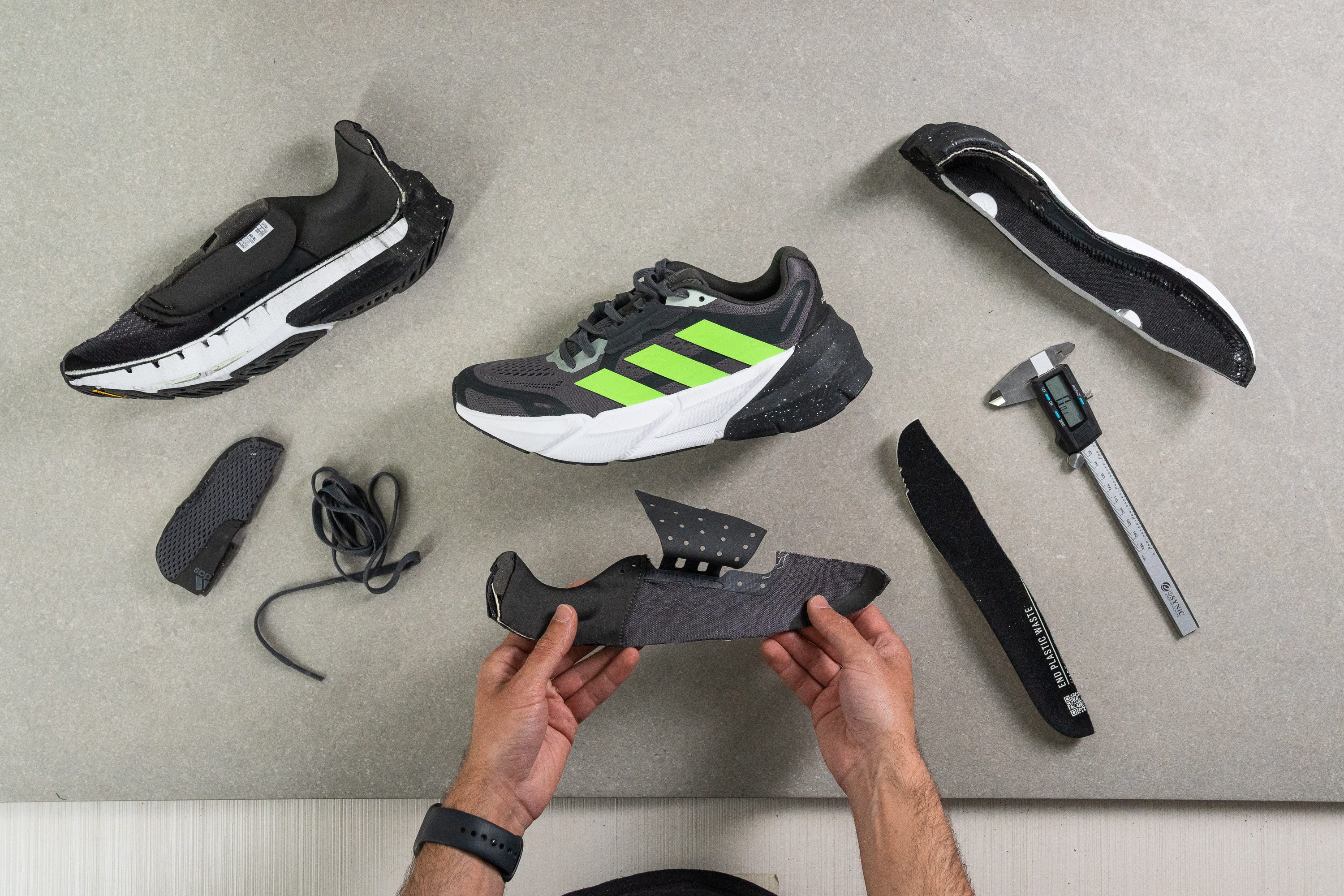
Who should buy the Adidas Adistar
If you're any of the following, don't write off the Adistar from Adidas:
- neutral runners looking for a shoe that's stable and guides the foot
- road runners who want daily trainer with plenty of padding
- runners who want a protective shoe for recovery days and long runs
- heel strikers who want to change their running stride
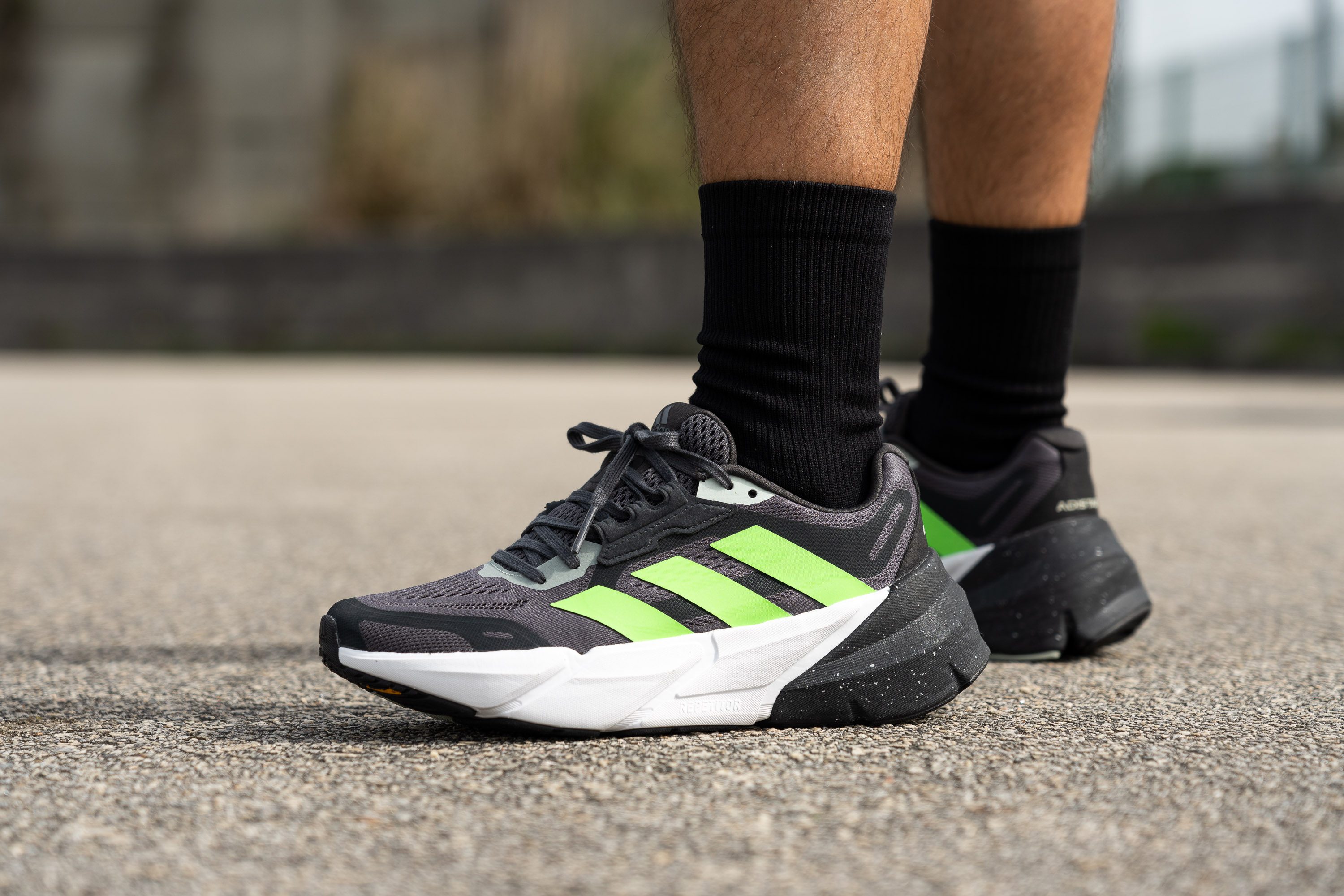
Who should NOT buy it
Adidas fans who want something lighter and cushier can go for the Adidas Ultraboost Light based on our test in the lab. Alternatively, we can recommend the Nike Invincible Run 3 and Hoka Clifton 9 to runners who want a soft yet responsive ride.
And for heel strikers who want a more forgiving rearfoot, opt for the Saucony Triumph 20 instead.
The Adidas Adistar screams surefooted
Fashioned after the highly stable Adistars of the past, this Adidas Adistar kept our strides steady and anchored. With a pronounced heel flare and a firm rearfoot cushion, our feet felt guided!
The midfoot area also has raised sidewalls that prevent excessive rolling inward and outward. And in the forefoot, the base is wide for planted steps.
Don't worry about hot weather conditions
The upper is so porous and light that we could feel the breeze on our skin. For that reason, we can highly recommend the Adistar for hot summer runs.
We put these claims to the test and boy, were we impressed! We gave the Adistar a solid 4 out of 5 rating in our breathability test, with 5 being the highest score.
To make sure, we ran with the upper under the light to examine its thickness and breathability.
That's when we discovered how Adidas achieved remarkable results, thanks to strategically placed ventilation holes in the toe box. They are HUGE!
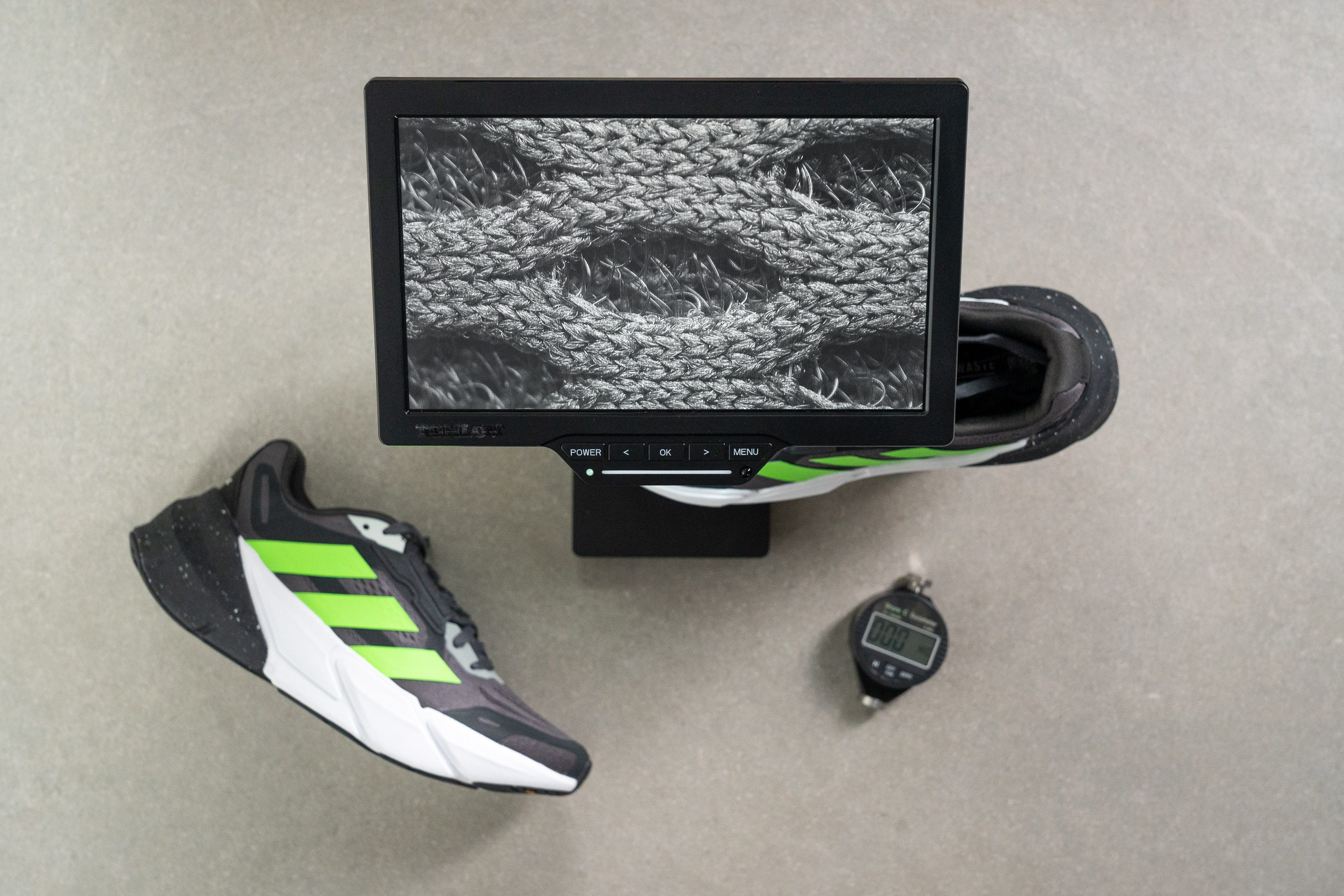
When we stumbled upon those awesome ventilation holes in the Adistar upper, we got more curious. We just had to get out our microscope and zoom in to see how they looked up close.
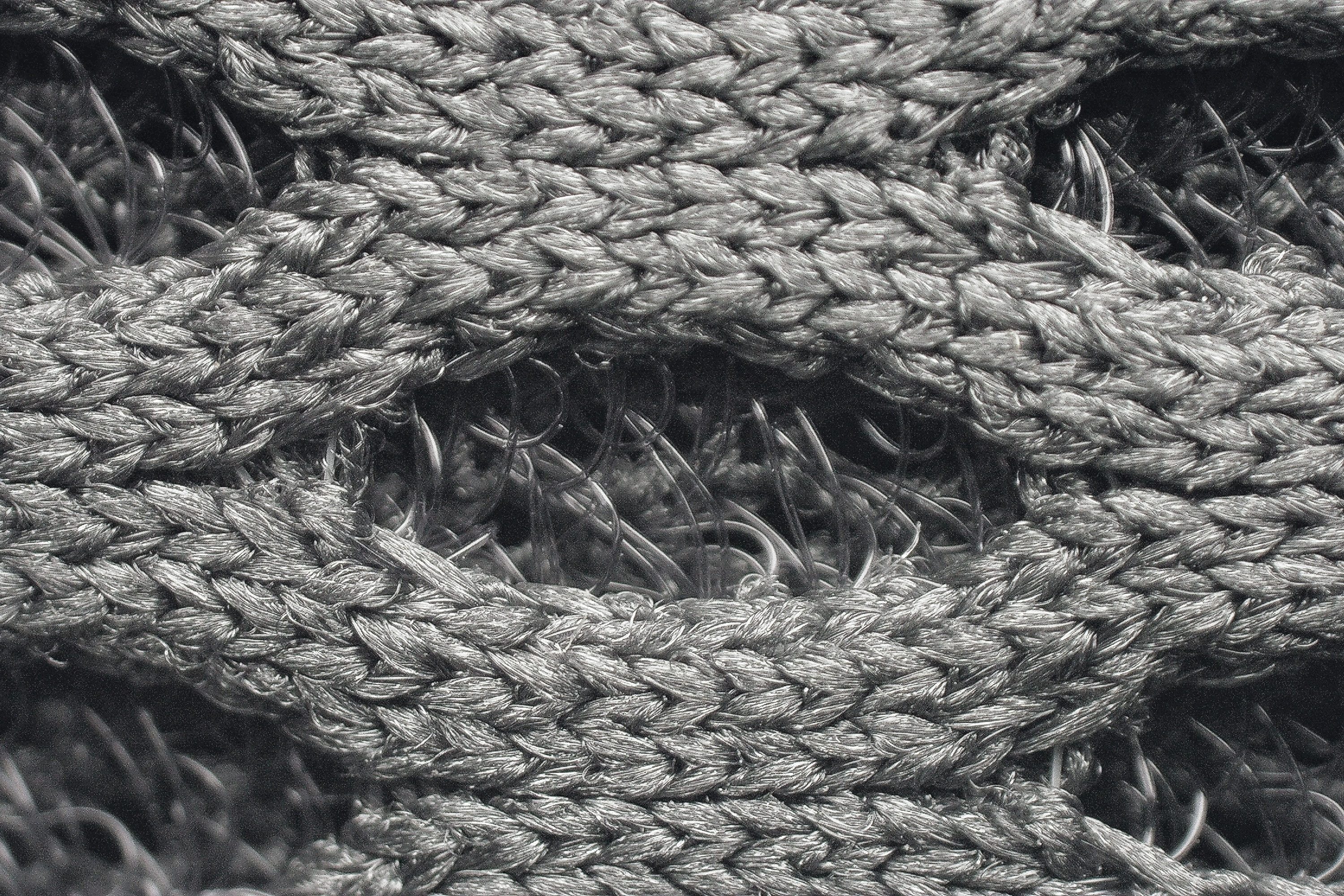
Well, it's safe to say this shoe lets your feet breathe like a breeze!
Fits just right!
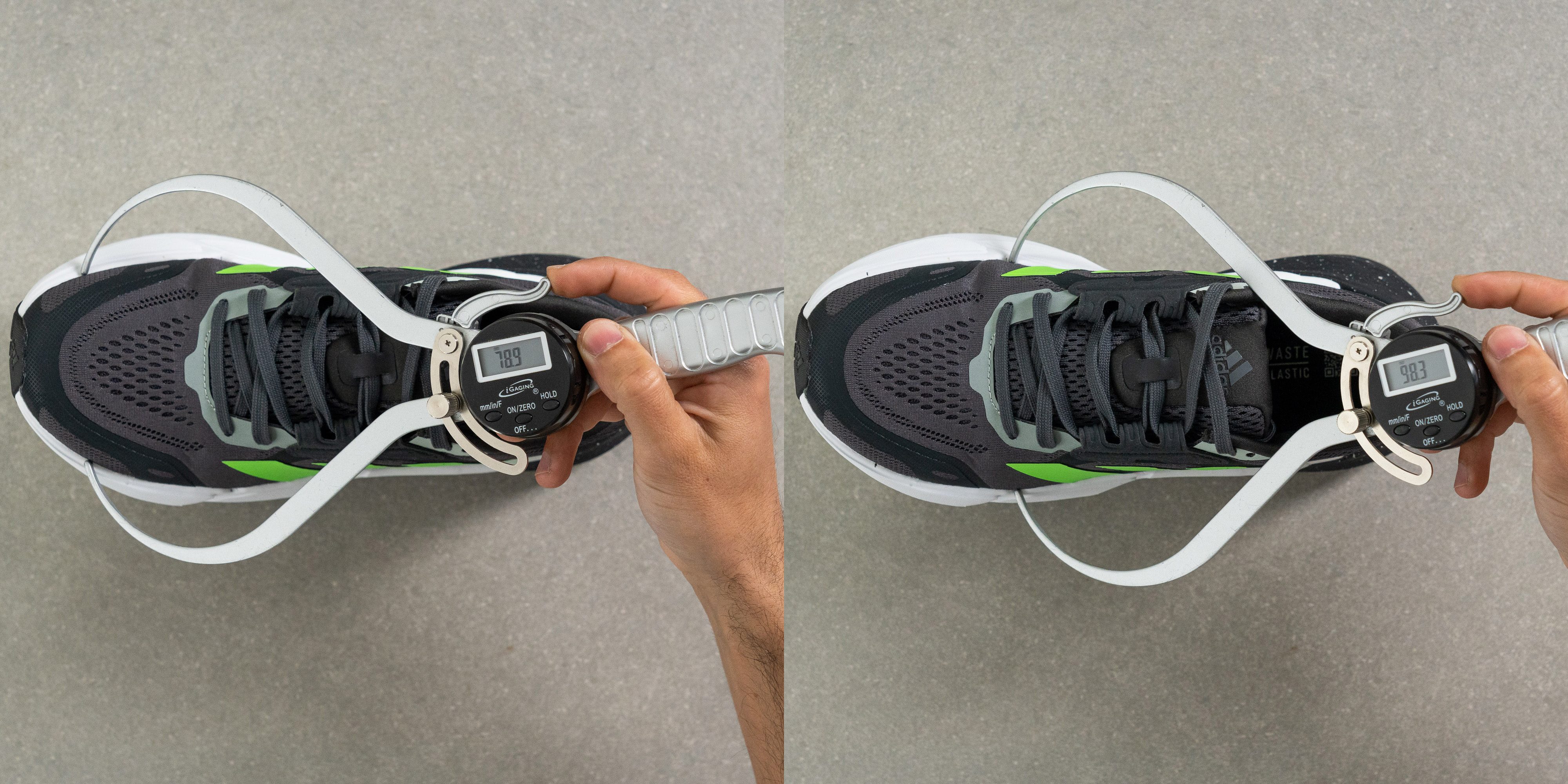
If you need room for your toes, this one's for you. The Adistar has a bigger toebox in both measurement points than already-wide shoes like the Hoka Gaviota 4 and the New Balance Fresh Foam X More v4!
The heel is really well-built. Well padded, not too rigid but enough to prevent heel slippage, and it never irritated our Achilles.
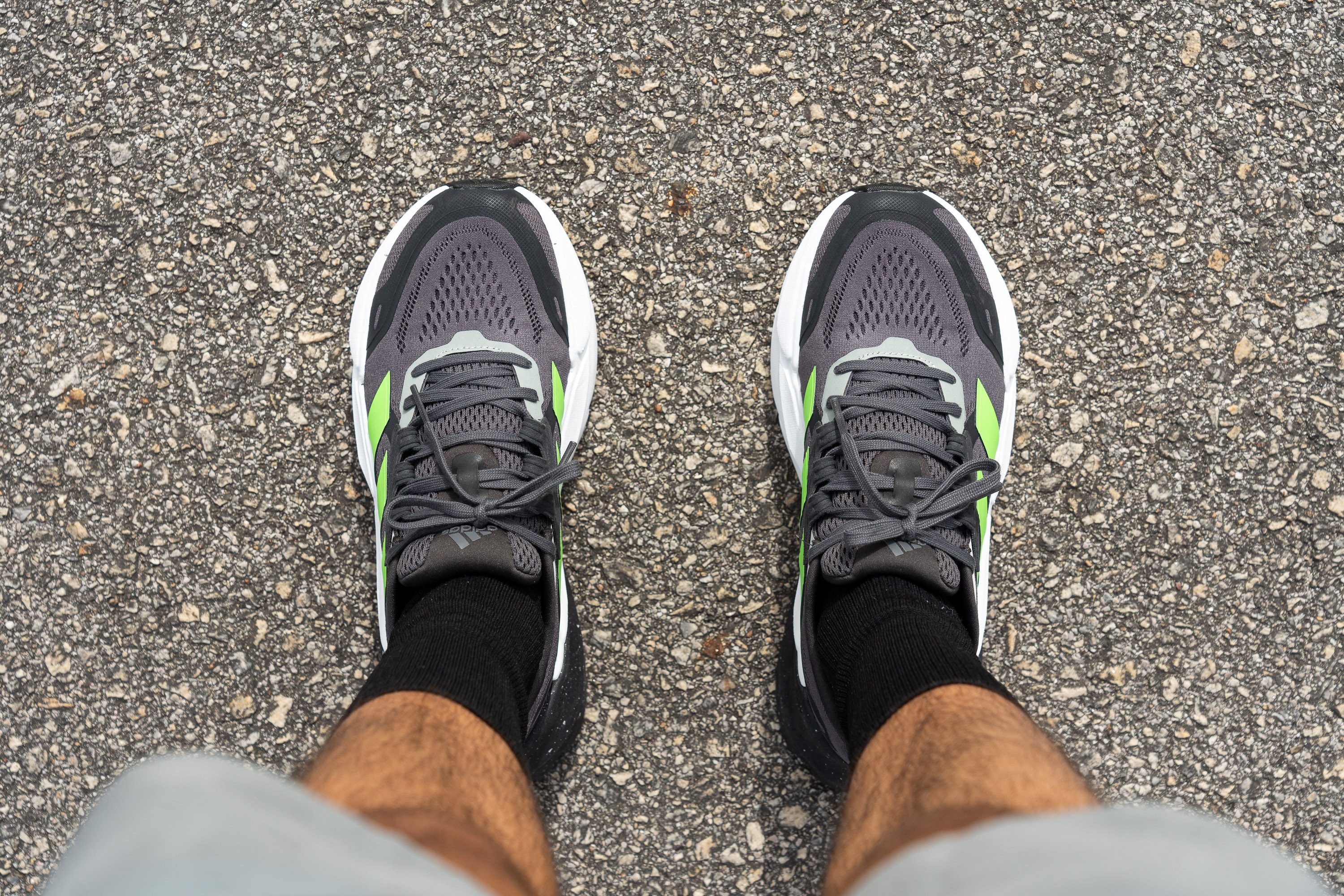
The overlays helped to keep our foot in place. And in the midfoot, the fit was neither too snug nor too sloppy.
The shoe is also very stretchy, almost like those of the early Boosts; it adapts to the shape and size of the foot. We don't think there's any need to lace-lock at all.
The trade-off for such incredible breathability and stretchiness is, of course, durability. The upper didn't stand a chance against our Dremel.
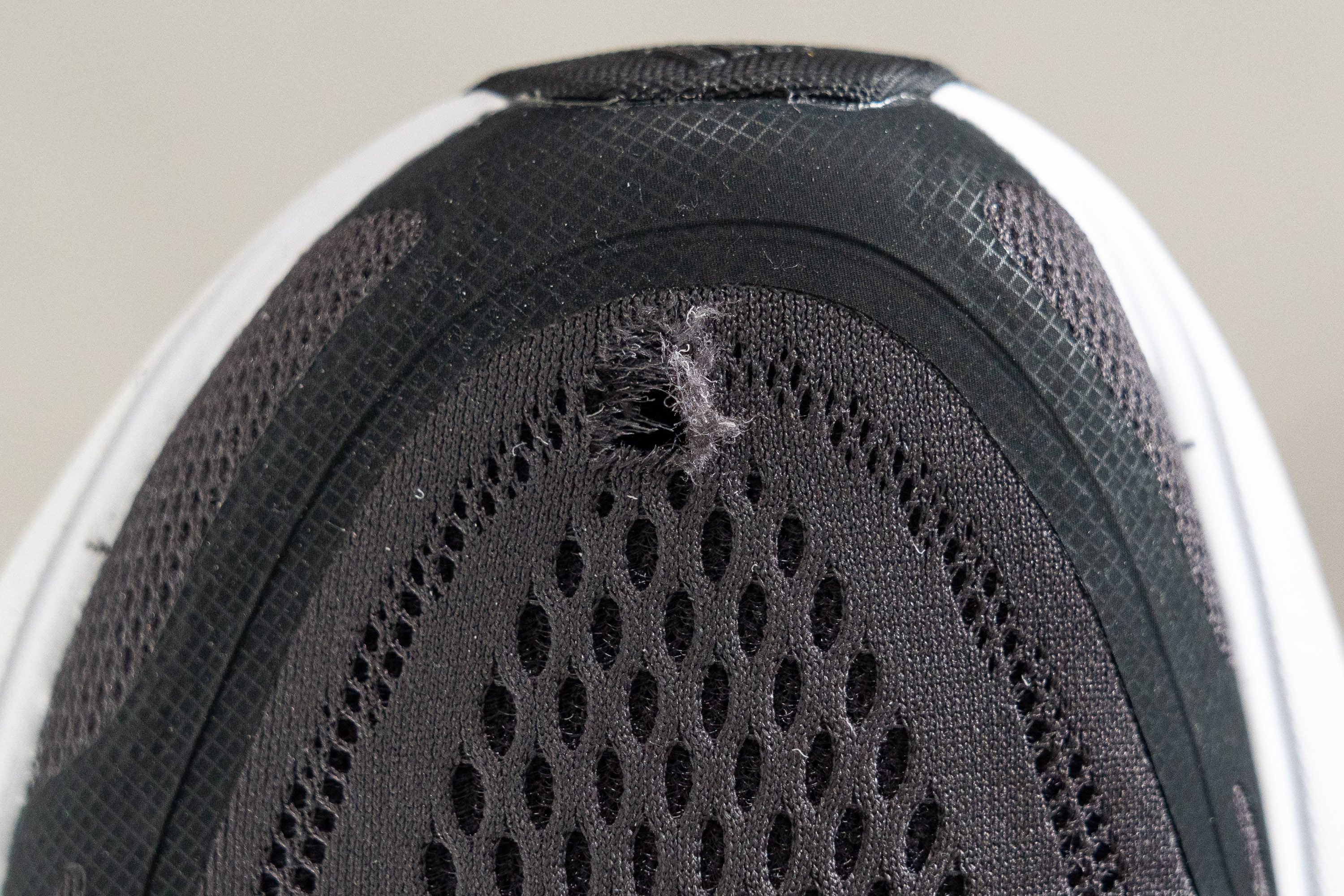
The damage is evident, leading to a clear conclusion—if you have a tendency to wear holes in thin uppers, this one might just join the club.
Mutes out ground feel
The Adidas Adistar is one heck of a chunky shoe. Because of this, it's an easy pick for days where protection from impact is needed, especially high-mileage efforts.
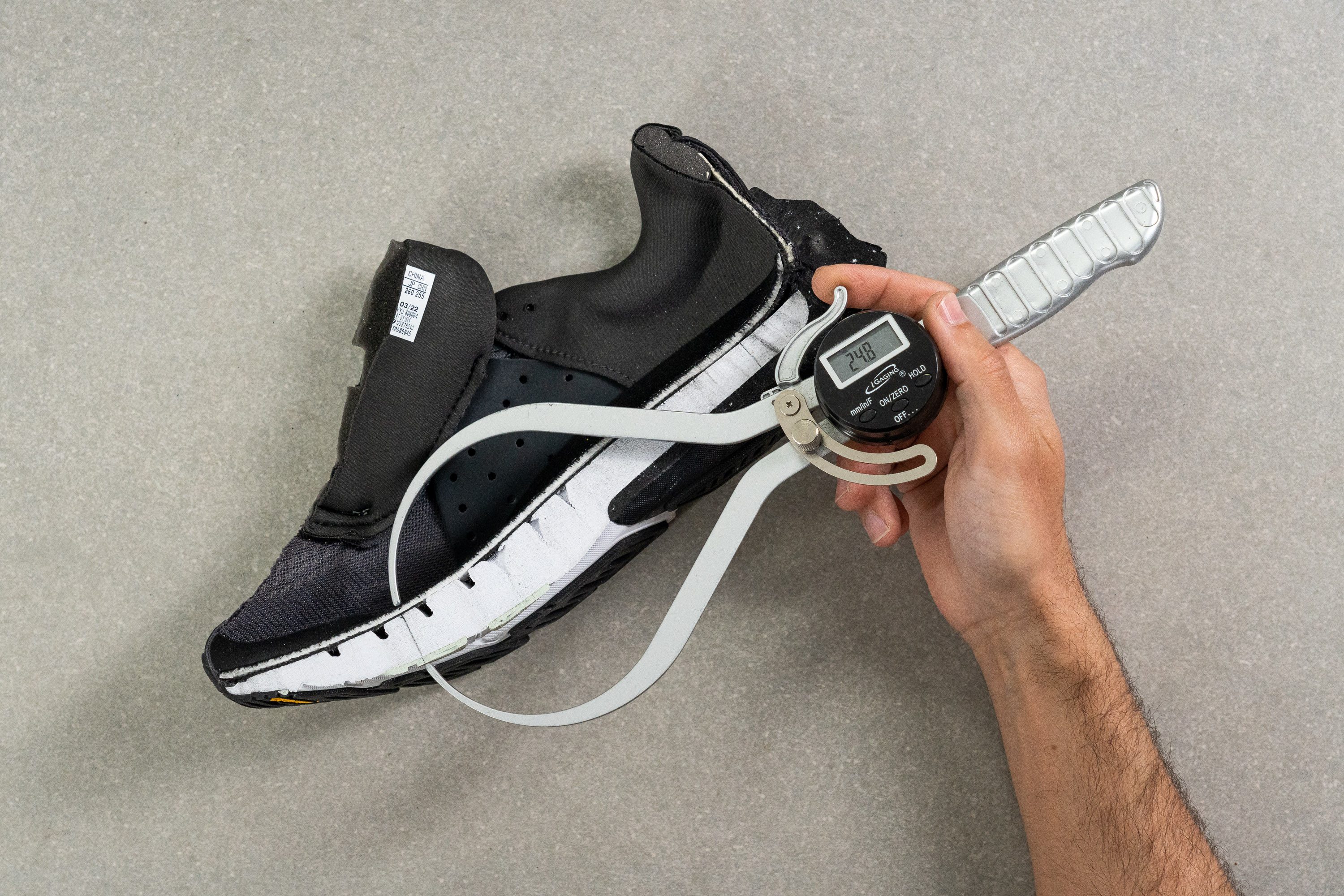
Adidas, we hate to break it to you, but your claim of a 6-mm drop it's not true. We carefully measured the stack height of this shoe and, guess what? We found out it actually has a 9.6-mm heel-to-toe drop. That's 60% steeper!
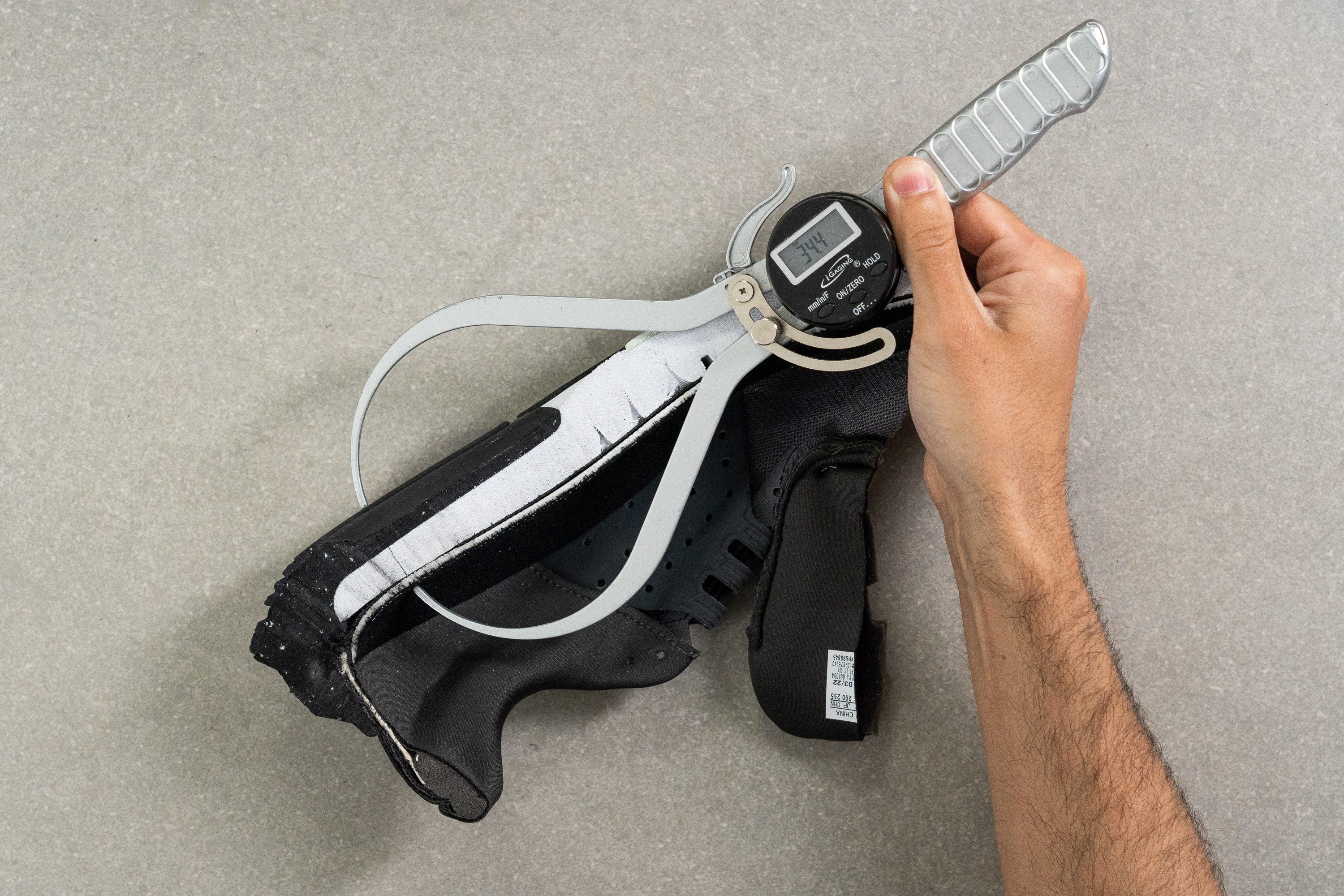
The midsole of this shoe is crafted from two distinct EVA-based foams:
- White: In the forefoot and midfoot areas, you'll find the REPETITOR foam with a hardness of 24.0 HA, which is just slightly below the average value.
- Black: The heel features REPETITOR+ foam, which is 29% firmer than the white one, which enhances stability for those who tend to strike with their heels while running.
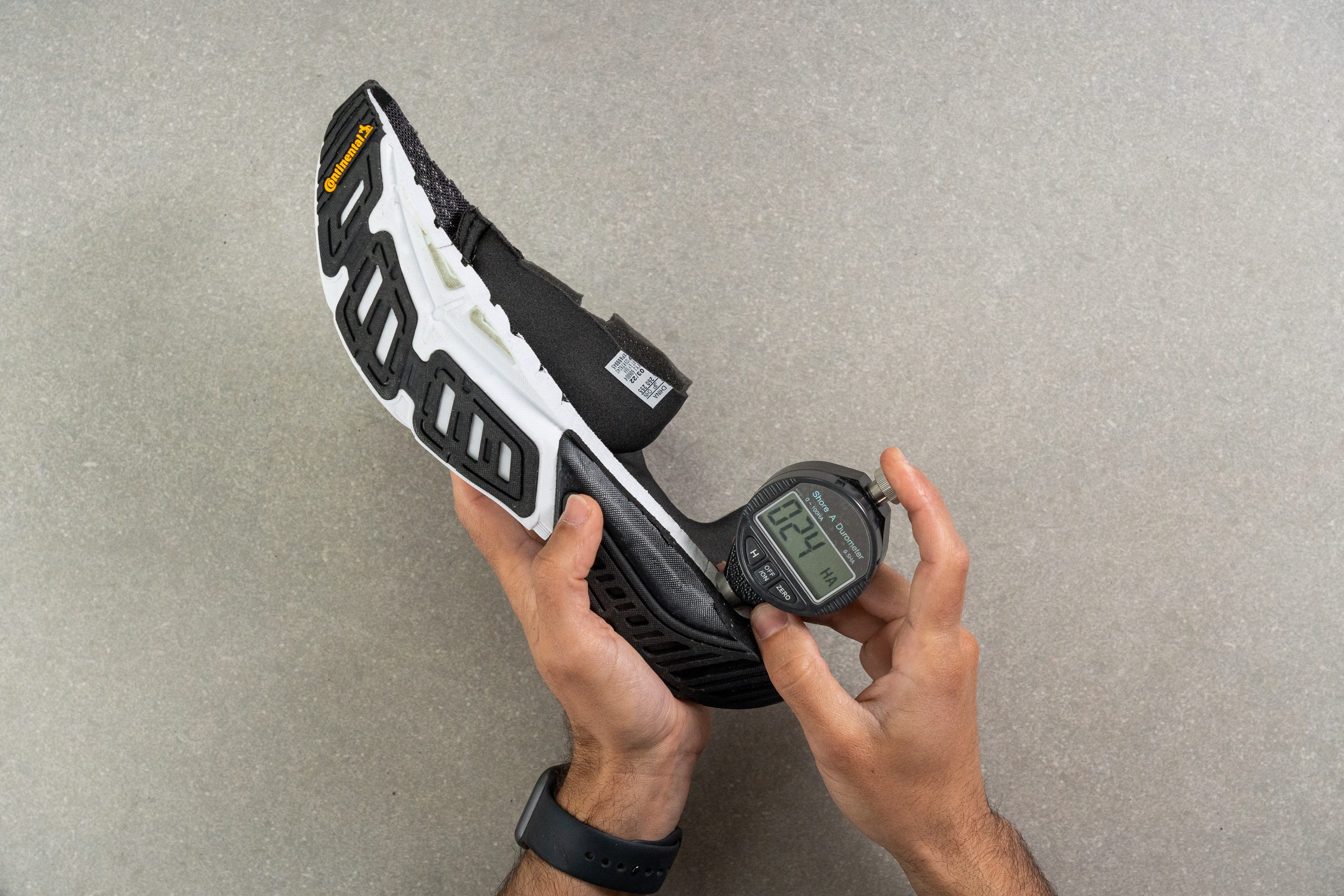
Because of the rigid heel, the Adistar has an uninspiring ride. It focuses more on protection and cushion rather than faster strides.
Unfortunately, this Adidas shoe doesn't get any better in winter.
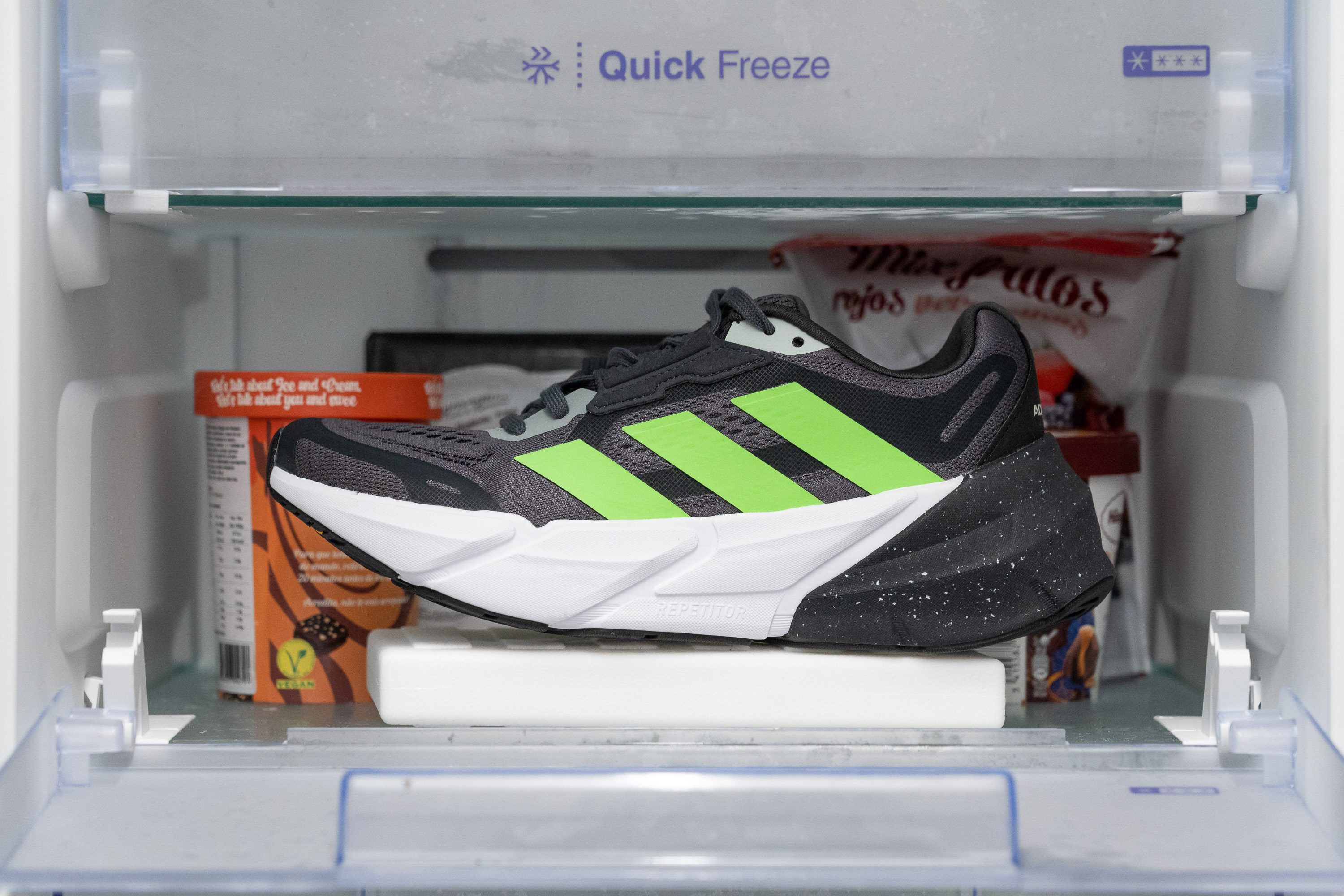
The EVA-based Adistar gets a whopping 57.3% stiffer (less flexible), and its foam turns 28.6% harder when put through our freezing test. Sadly, both values fall short of the average shoe.
So, if you're looking for a winter-ready running buddy, you might want to look at a shoe without an EVA-based foam. As we explained in our foams guide, premium midsoles like Nike's ZoomX work wonders in winter.
Clunky and dull ride
Daily trainers, on average, weigh in at 10 oz. or 286 g. (in men's US 9). The Adidas Adistar tips the scales 325g.
In addition to the probably-too-much-weight, the Adistar is also somewhat stiff. It did result in a more stable ride but really lacked the smoothness of the more flexible road shoes.
This aligns perfectly with our findings. We gave the Adistar a rating of 3 out of 5 for longitudinal flexibility and a rating of 4 out of 5 for torsional flexibility. With 5 being the maximum score, it's safe to say these shoes are quite stiff, no doubt about it.
There is absolutely no chance of feeling a flexible ride in this one. If you need that, check the Nike ZoomX Invincible Run 2, which scored only 2 in both manual assessments and is 9% less stiff in the 90º bend test.
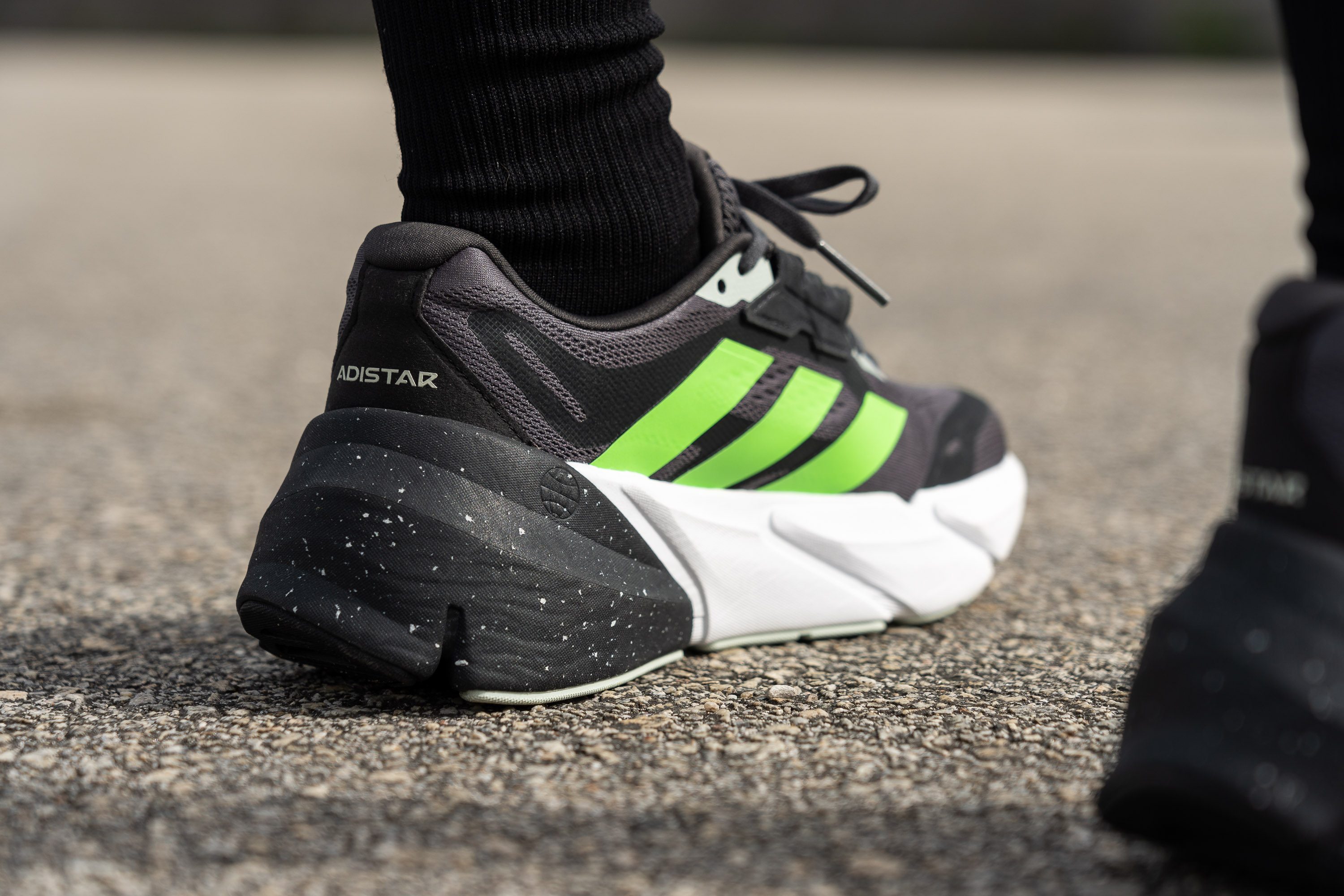
Even though it has a somewhat-rockered shape, particularly in the forefoot, don't expect the incredibly smooth ride you'd get from a New Balance SC Trainer. If you're looking for a shoe that's soft and rockered, get that NB instead.
World-class stability!
The Adistar line has been always marketed as a stability-oriented shoe. Now, Adidas markets it as a neutral shoe, but it still felt very much stable to us.
How can any shoe achieve incredible stability without relying on the usual tricks like rigid heel counters or medial posts? Well, the answer is simple: by having a hyper-wide platform.
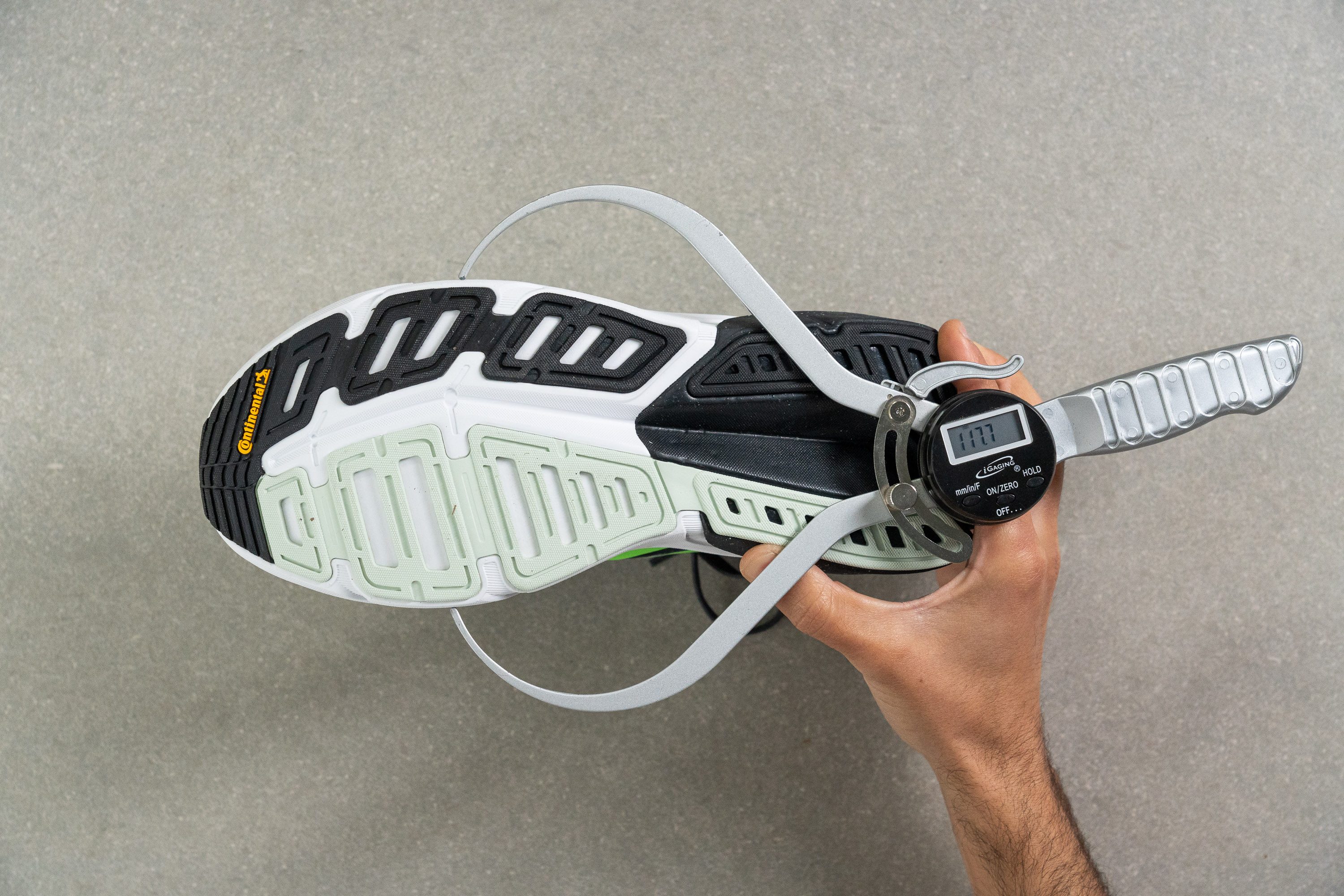
We took out our trusty calliper to get precise measurements of this shoe, and it's WIDE. With a jaw-dropping 117.7 mm in the forefoot, it's even wider than the highly acclaimed Hoka Gaviota 4 (115.0 mm), which is known as one of the top stability shoes on the market.
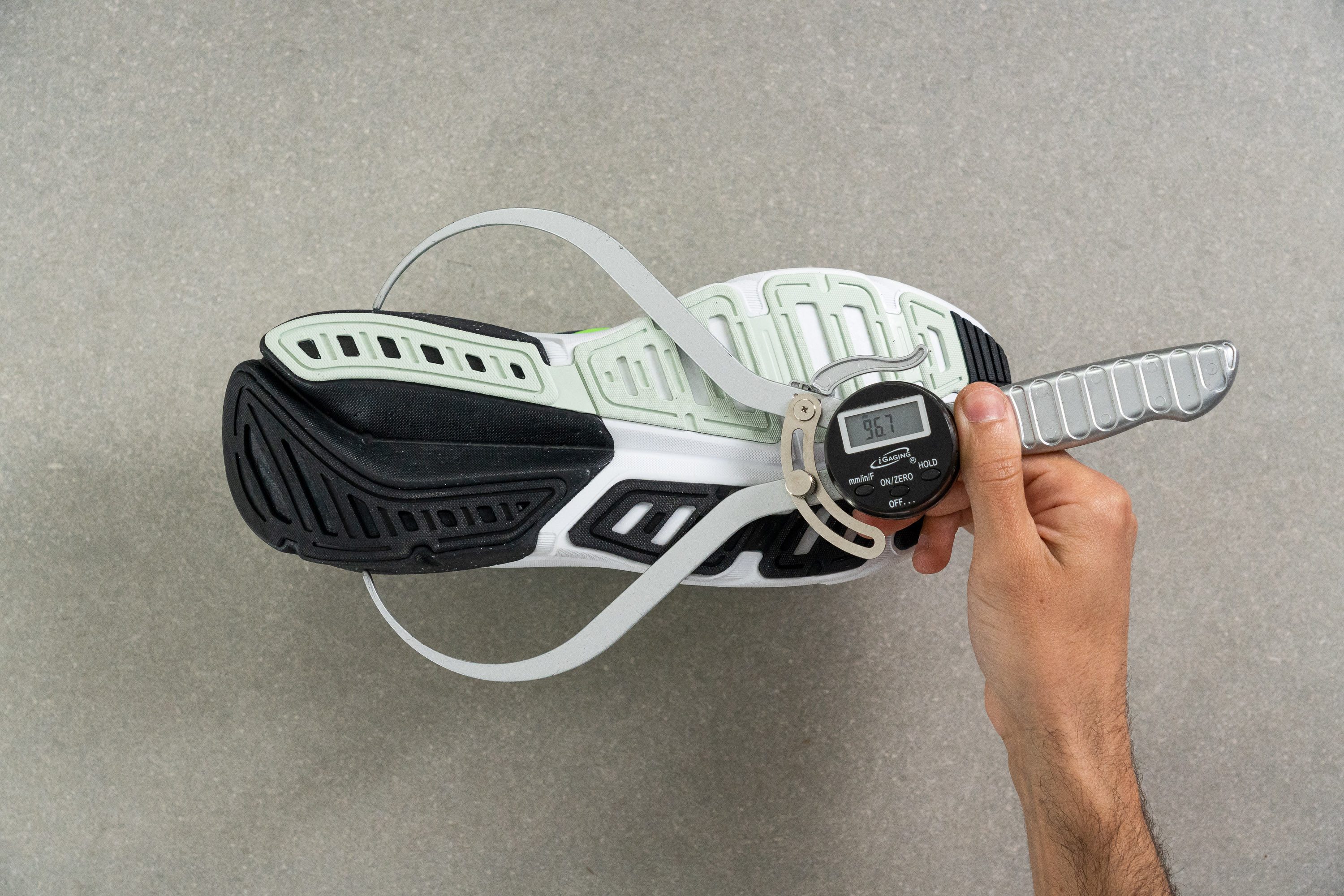
The trend continues with the heel, which is a remarkable 8% wider than your average shoe.
Tongue amps up lockdown and feels like a pillow
It's not gusseted but it does an excellent job in tucking the foot in position. For us, the tongue stayed in place through the entire run.
But where it truly excels is in the comfort department. Adidas really went all out on this, without worrying about adding any extra weight.
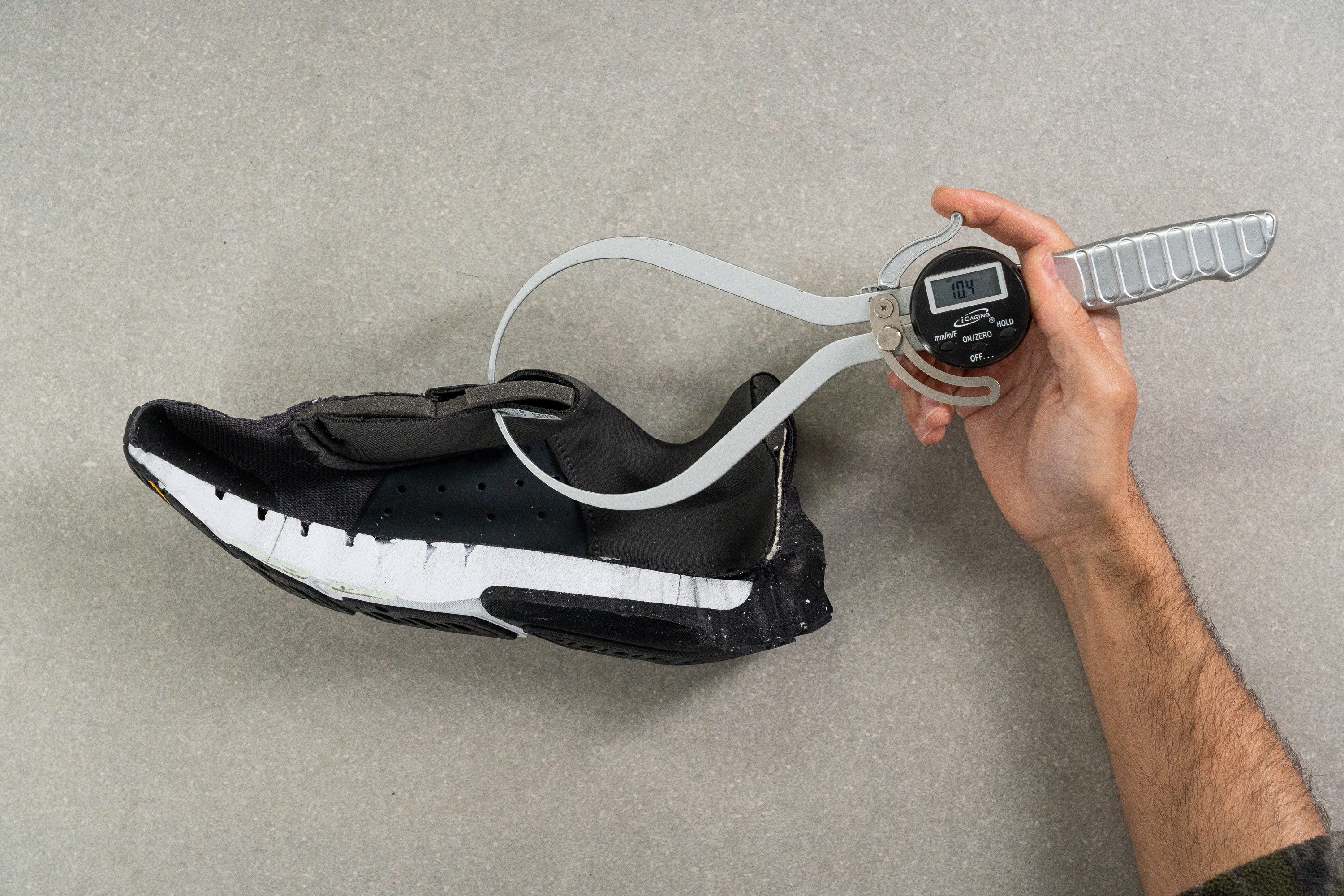
That means there's absolutely ZERO chance of experiencing lace bite with this incredible 10.4 mm thick tongue. It's almost double the thickness of the average shoe!
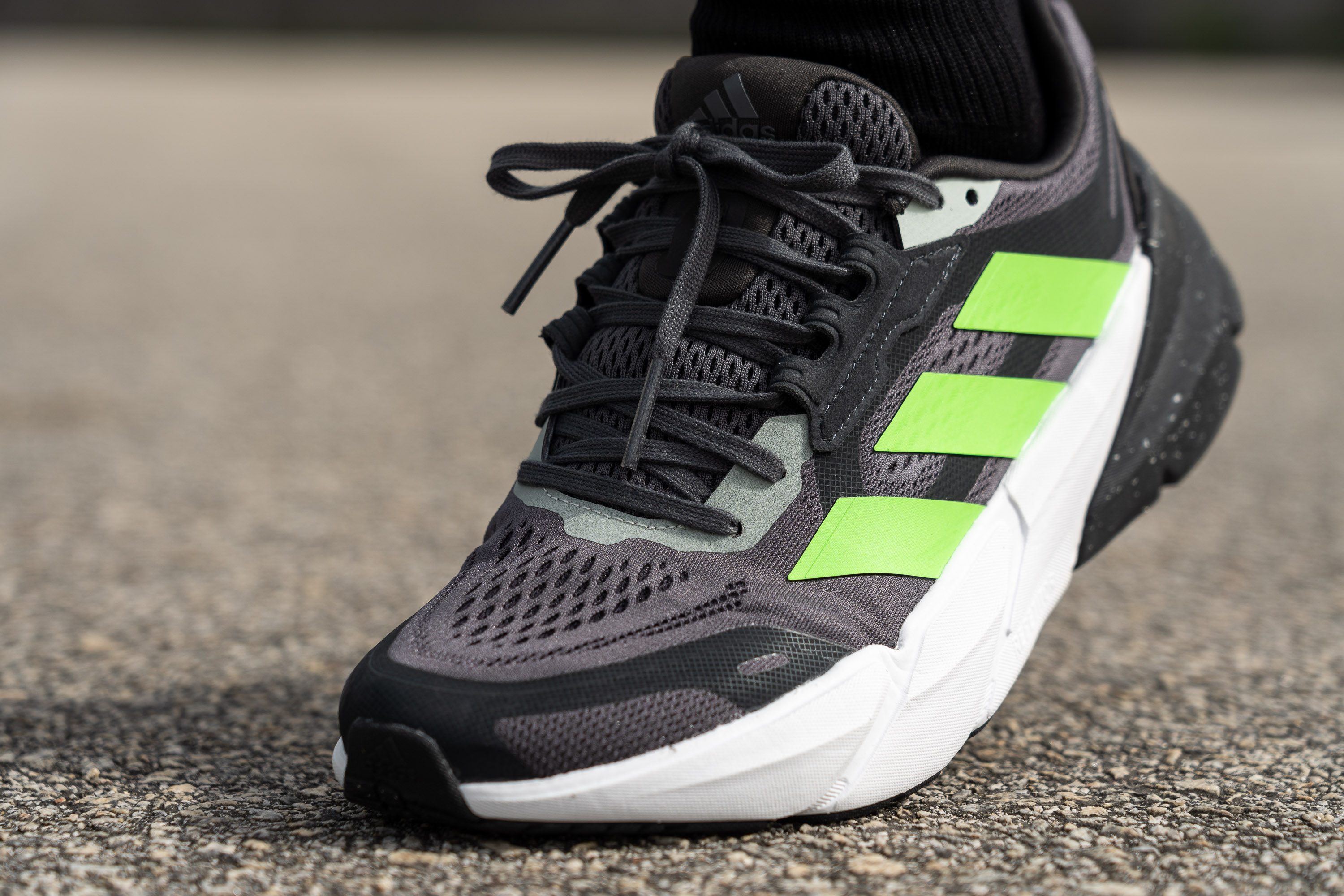
The Continental outsole clings like claws
Like other Adidas running shoes with Continental rubber, the Adidas Adistar's traction is best-in-class. It can even handle icy steps!
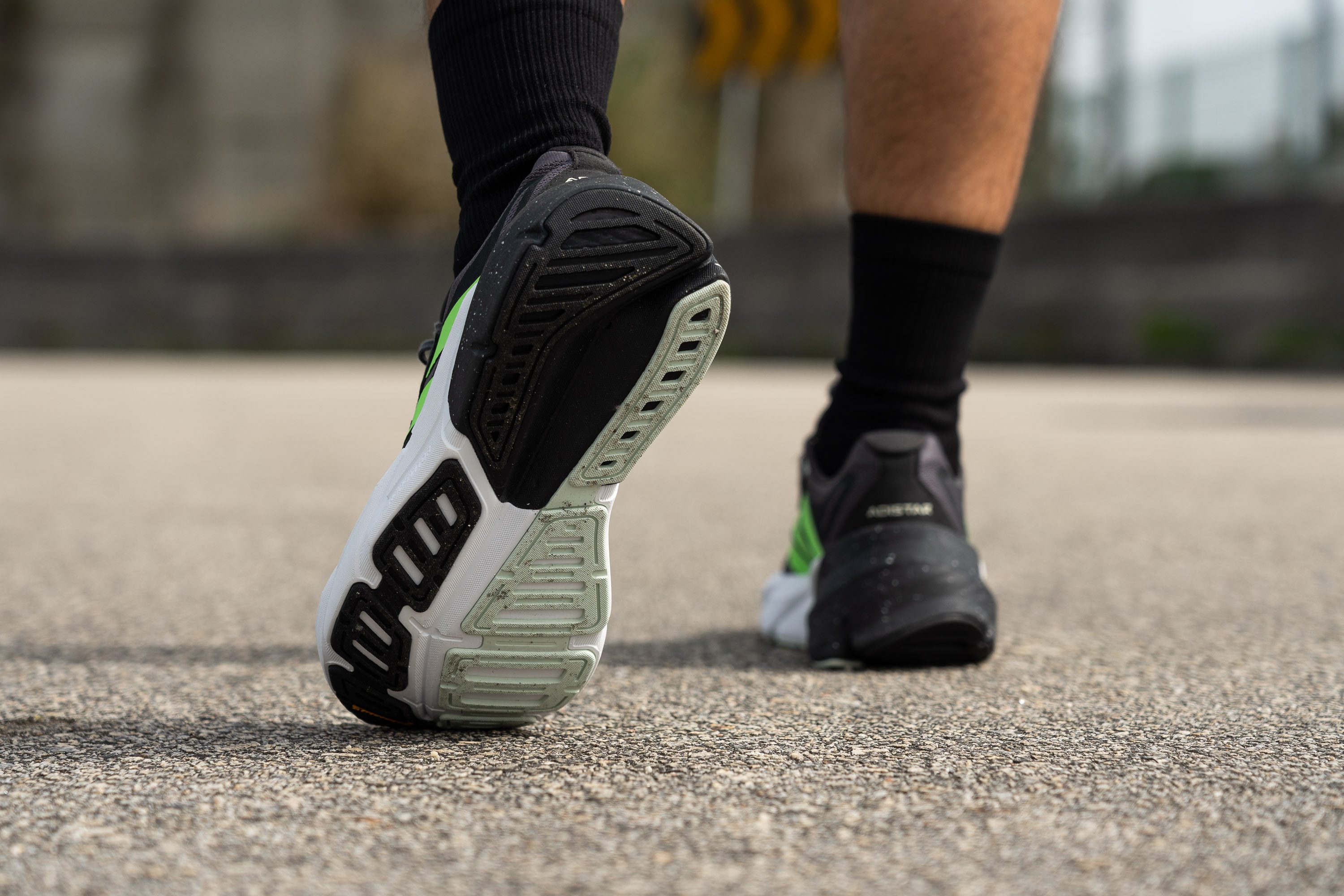
After 30 miles of wear test, there's barely any dent on the shoe's Continental outsole.
We discovered that the 3.3-mm rubber is super durable, easily withstanding wear and tear for countless miles on the road.
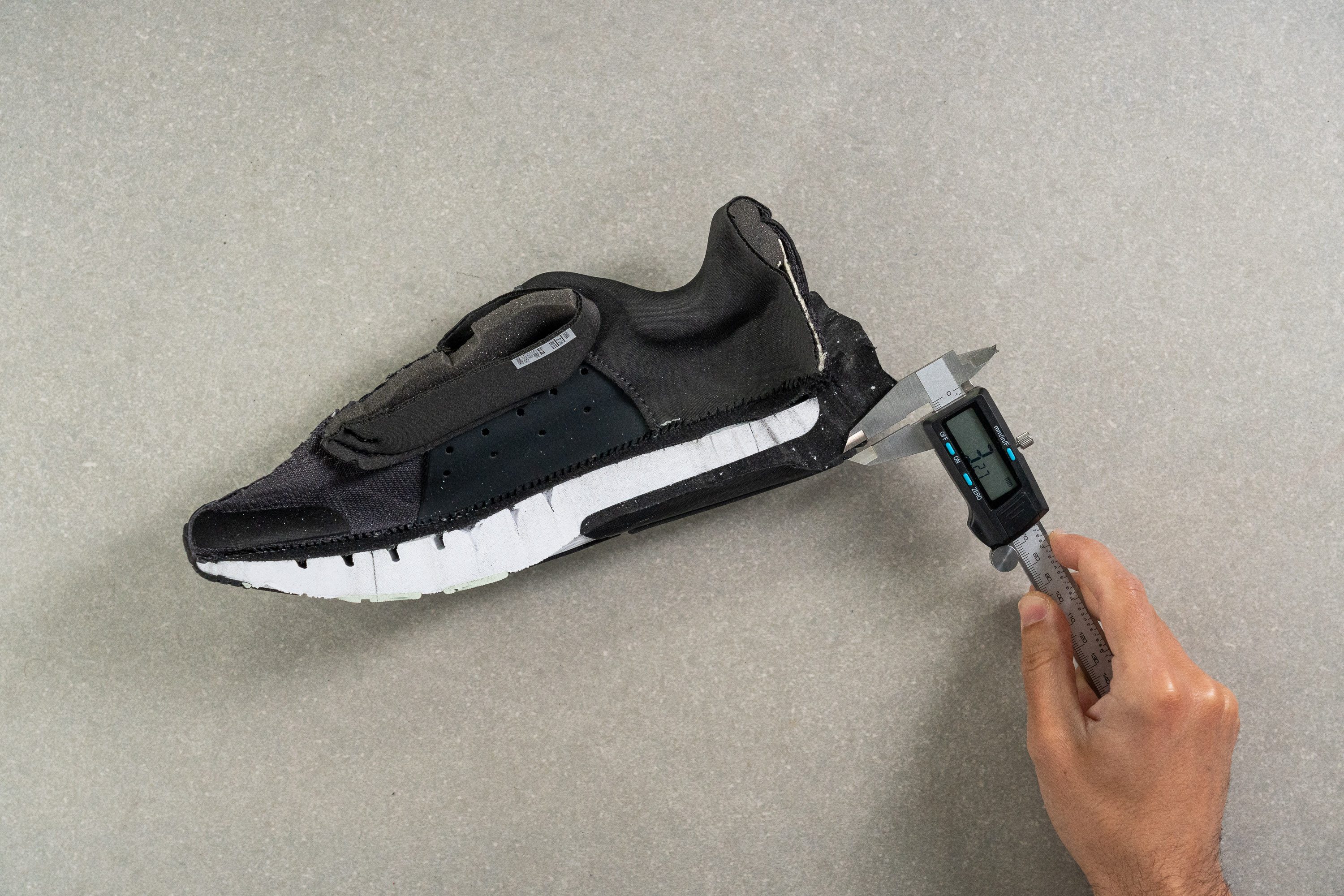
We gauged the rubber's hardness at 81.1 HC, which is even 2% higher than the average shoe.
Combined with the well-known durability of Continental outsoles, it's highly likely that the upper part of the shoe will wear out way before the outsole does. We bet on it!
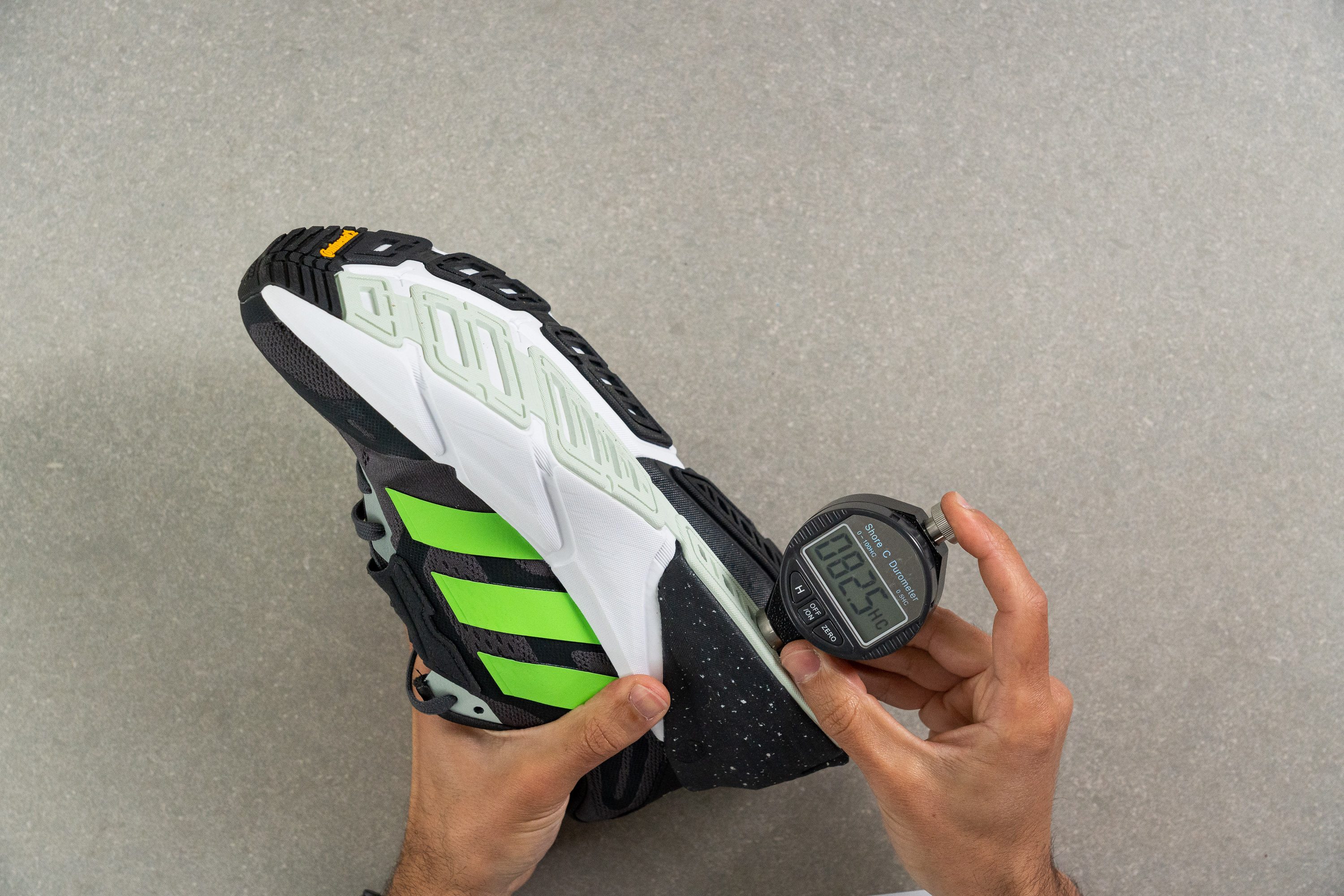
Paper-thin insole
Upon examining the whole shoe, our anticipation for a thick insole is met with a surprise. Instead, we discovered a 2.7 mm insole, which happens to be 63% thinner than the average measurement.
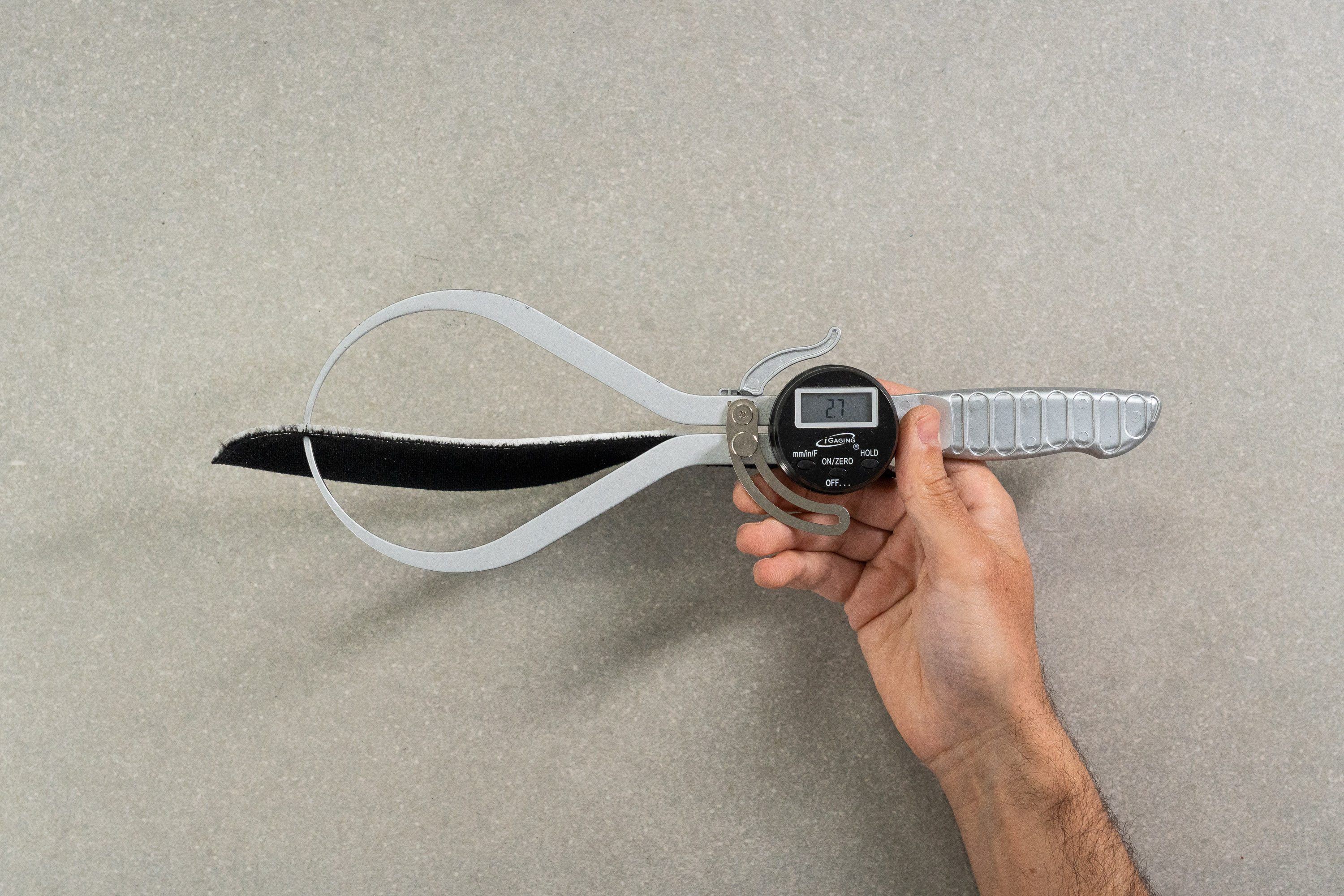
Now, here's the good news: the insole is removable. This means you have the chance to replace it with a thicker or more cushioned one.
Cares for the planet
Lessening impact on the environment, 50% recycled polyester and 50% recycled sea plastic are used in the upper. Better than most brands, but still not enough.
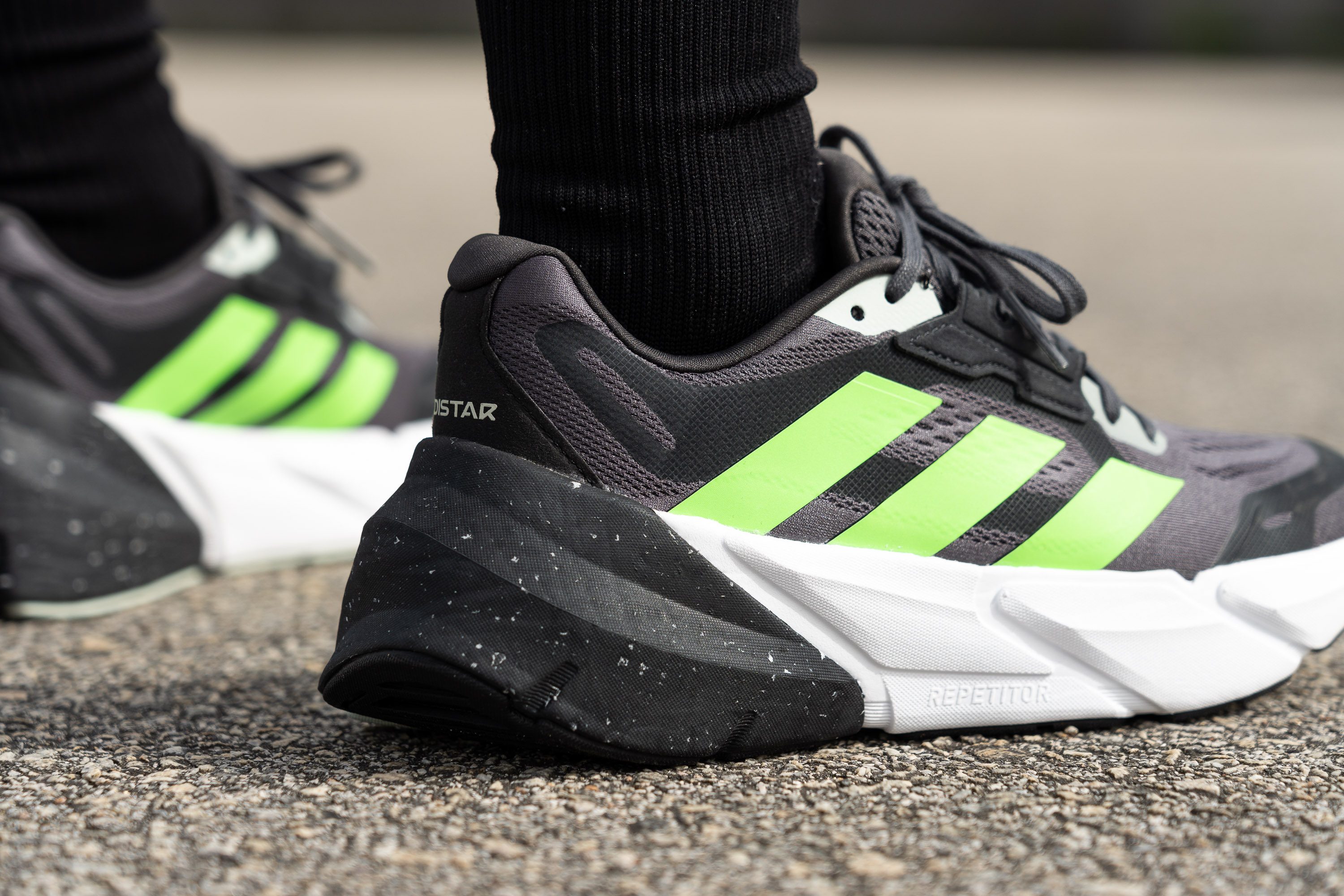
And don't worry, although it's partially made with plastic, we never found it to be scratchy.
